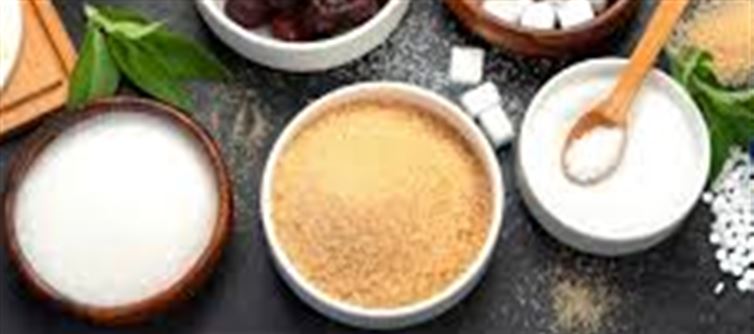
For many, a cup of tea is incomplete without a dash of sugar. However, overconsumption of sugar can lead to various health problems such as weight gain, diabetes, and increased inflammation. The good news is that there are several natural sweeteners that can be used as sugar substitutes in tea, providing not only a healthier option but also additional health benefits. Here's a list of 5 natural sugar alternatives that can sweeten your tea while keeping you warm and healthy:
1. Honey: A Natural antioxidant Powerhouse
Honey has long been celebrated for its numerous health benefits. It is a rich source of antioxidants, vitamins, and minerals, making it an excellent alternative to sugar. When added to tea, honey not only provides a pleasant sweetness but also helps to soothe the throat and boost the immune system.
· Benefits: Honey helps in digestion, reduces inflammation, and provides a quick energy boost.
· How to use: Use 1-2 teaspoons of raw, organic honey in your tea. Avoid adding honey to boiling water, as heat can destroy its beneficial enzymes.
2. Stevia: The Zero-Calorie Sweetener
Stevia is a plant-based sweetener that comes from the leaves of the Stevia plant. It has become a popular alternative for people looking to cut out sugar without compromising on sweetness. Stevia is calorie-free, making it ideal for those watching their weight or managing their blood sugar levels.
· Benefits: Stevia can help regulate blood sugar levels, reduce cravings, and improve oral health.
· How to use: Add 1-2 drops or a small pinch of stevia powder to your tea. Start with a small amount, as it’s much sweeter than sugar.
3. Cinnamon: A Sweet, Spicy Kick
Cinnamon is not only a delicious spice but also a great way to naturally sweeten your tea without the need for sugar. It has a naturally sweet taste that can complement both herbal and black teas. Plus, cinnamon is packed with anti-inflammatory properties and can help regulate blood sugar levels.
· Benefits: cinnamon is known for improving insulin sensitivity, aiding in digestion, and boosting metabolism.
· How to use: Add a cinnamon stick or a dash of ground cinnamon to your tea. It can be brewed with the tea leaves or stirred in after steeping.
4. Maple Syrup: A Sweetener with Nutritional Value
Maple syrup, derived from the sap of sugar maple trees, is a natural sweetener that offers a rich, complex flavor. Unlike refined sugar, it contains essential minerals like manganese, zinc, and calcium, making it a healthier choice for those who want to sweeten their tea with something more nutritious.
· Benefits: Maple syrup has antioxidant properties, supports immune function, and can promote better skin health.
· How to use: Stir in 1-2 teaspoons of pure maple syrup into your cup of tea for a unique and warming sweetness.
5. Coconut Sugar: A Low Glycemic Index Alternative
Coconut sugar is made from the sap of the coconut tree, and it has a low glycemic index, making it an excellent option for those concerned about blood sugar spikes. Unlike refined sugar, coconut sugar retains some of the nutrients from the coconut palm, such as iron, zinc, and vitamins.
· Benefits: Coconut sugar is a natural energy booster, aids in digestive health, and helps stabilize blood sugar levels.
· How to use: Add 1 teaspoon of coconut sugar to your tea. It has a mild, caramel-like flavor that pairs well with both black and herbal teas.
Bonus: Other Natural Sweeteners
· Date Syrup: Made from dates, this syrup is a nutritious sweetener that contains fiber and antioxidants.
· Agave Nectar: A syrup derived from the agave plant, agave nectar is sweeter than honey and has a low glycemic index, making it another great option for those managing blood sugar levels.
Conclusion: A Healthier, Warmer You
Sugar may add sweetness to your tea, but it comes at a significant cost to your health. By replacing sugar with natural sweeteners like honey, stevia, cinnamon, maple syrup, or coconut sugar, you can enjoy a healthier and more nutritious cup of tea. These natural alternatives not only satisfy your sweet cravings but also provide extra health benefits that sugar simply can’t offer. Make the switch today, and your body will thank you for it!
Disclaimer:
The views and opinions expressed in this article are those of the author and do not necessarily reflect the official policy or position of any agency, organization, employer, or company. All information provided is for general informational purposes only. While every effort has been made to ensure accuracy, we make no representations or warranties of any kind, express or implied, about the completeness, reliability, or suitability of the information contained herein. Readers are advised to verify facts and seek professional advice where necessary. Any reliance placed on such information is strictly at the reader’s own risk..jpg)




 click and follow Indiaherald WhatsApp channel
click and follow Indiaherald WhatsApp channel